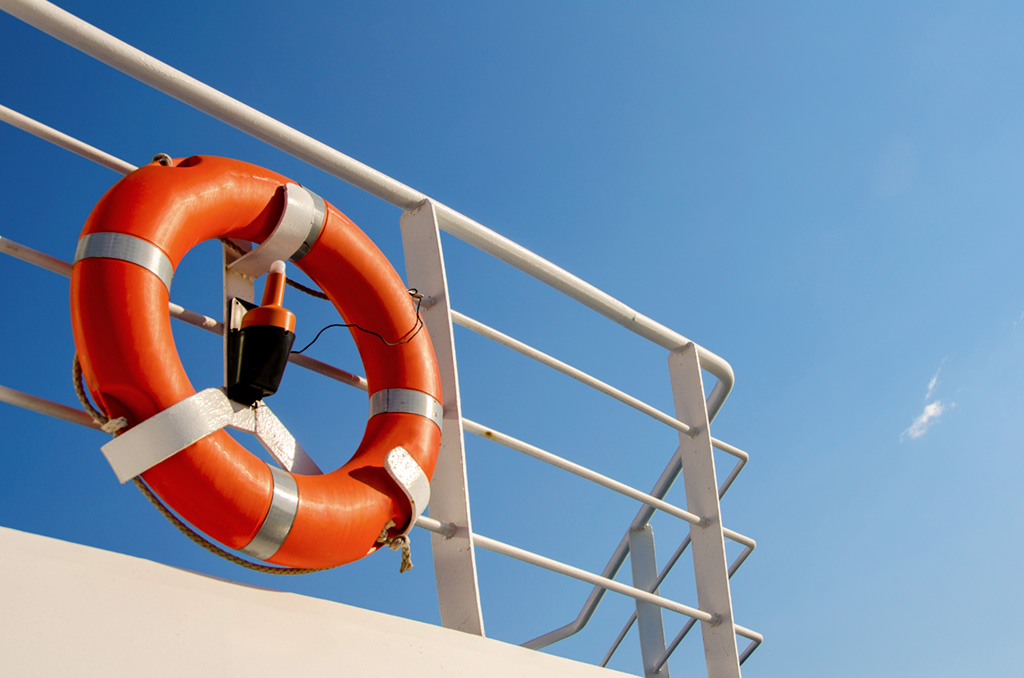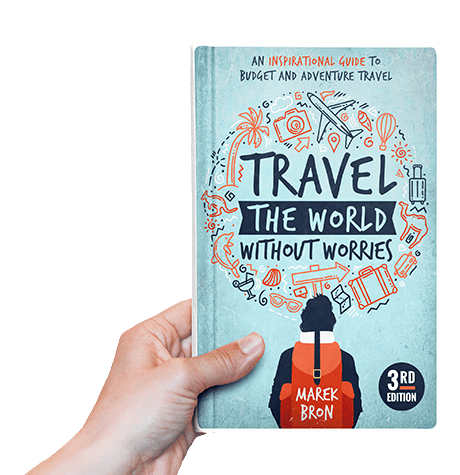Travel insurance is a tricky subject.
No doubt you have noticed many travel bloggers mentioning the need for travel insurance. They have real reasons to advise this, but the truth is that bloggers can typically earn commission on insurance plans — and so do I. In recent years, this may have led to some scepticism (perhaps among less experienced travellers) as to whether insurance is genuinely necessary.
Another issue with insurance is that policies can be complicated, which can lead to misunderstandings when people make a claim, which in turn can result in negative comments online about travel insurance that aren’t really accurate.
Travel insurance is ultimately a personal financial matter, so only you can decide if it’s worth it. But I thought I’d share my own experiences and perhaps a few cautionary tales.
I don’t always use travel insurance
Firstly, I think there are some trips where getting travel insurance is not the most critical.
For instance, I’m an EU citizen, and when I travel to a neighboring EU country I typically won’t get dedicated trip insurance, in part because medical assistance is already covered by my home medical insurance through EU rules.
If you’re a resident of the United States, you probably don’t always need travel insurance when travelling within the USA when your home medical insurance will likely cover you for incidents. And maybe you also just feel the risks are not as strong when travelling domestically, which isn’t necesserily true but it’s arguably easier to get help in your own country.
The situation quickly changes if you are travelling abroad. The most important thing to keep in mind is that whatever medical insurance you have at home almost never applies abroad.
In my opinion, your risks also change especially when travelling in more adventurous destinations, where a range of possible incidents could seriously affect your trip if you are unlucky.
So, when I travel abroad, and especially when I expect to be doing some adventurous stuff (anything from hiking to scuba diving) I do make sure that I’m ensured.
I’ve been using annual travel insurance since 2009 with several different insurance companies.
What I think insurance is best for
Comprehensive travel insurance won’t, in itself, help you stay safe or healthy, but it can minimize the financial risks of travelling, particularly in the case of accidents or other unforeseen situations.
What you’re covered for depends entirely on your insurance package. Usually, it covers you for a number of scenarios such as theft, loss of passport, missed departure, scheduled airline failure, and cancellation (only for emergency reasons, not because you got cold feet!).
I think these are all nice to have, but in my opinion the real reason to get travel insurance is for:
- medical expenses
- personal liability coverage
Basically, if your phone gets stolen, that can still be a recoverable setback even if you don’t have insurance. But if you need to be hospitalized abroad, the bills can quickly run into the tens of thousands of Dollars or Euros. It’s in these sorts of scenarios that travel insurance truly has your back.
Most insurers will cover you for up to millions of Dollars/Euros/Pounds of medical expenses.
Personal liability insurance is another good one to have as part of your travel insurance package. It will be a real lifesaver if you accidentally damage someone’s property or accidentally injure someone. This is extremely useful if you plan to rent any equipment or vehicles. Personal liability is usually covered up to another humongous amount (often a million or more).
In my view, insurance is for the more unlikely events that can have the greatest financial impact. The other coverages such as theft coverage are more like a bonus. Using a better lock or being diligent with your security will honestly help more with this than insurance.
On some travel forums, I’ve seen some people regret not to have ‘used’ their insurance for something so that they ‘lost money on it’ but that’s not really how insurance should be viewed. It is a service that helps you de-risk your trip, and if you didn’t have to make a claim, that’s absolutely a good thing.

The $10,000 helicopter ride
Knock on wood, I’ve yet to use travel insurance for something extremely serious. However, I have over the years benefited from the medical coverage in particular.
When excessive scuba diving in Thailand caused some severe inner-ear barotrauma, I was able to easily get directions from my insurer to a specialist in a Singapore hospital. (Luckily, my ears healed after a week or so.)
I’ve also made a claim once for a stolen phone in Laos, which required me to get the original receipt and get official papers from the local police. (Yes, making claims always involves some paperwork! Otherwise, an insurer would be simply at too much risk of fraud.)
What often gives me peace of mind is not just the financial compensation, but travel insurers typically have a 24/7 helpline or chat channel where you can get assistance in the case of an incident.
While I have made only minor claims myself, I have met less fortunate travellers over the years who have had to cover major expenses.
A few years ago, I was trekking in Nepal to Annapurna Base Camp in the Himalayas. This is not necesserily a dangerous expedition: loads of people do this popular trek, much like the Machu Picchu trek in Peru.
Nevertheless, I met this Australian guy who slipped and broke his knee at 3500m altitude. He absolutely 100% couldn’t walk anymore.
And so he had to get a helicopter out of there. It was the only way to get to a proper hospital in Kathmandu.
The normal cost? Over $10,000.
With his insurance? Zero moneys.
After a few calls back and forth with his insurer from a teahouse on a lone mountain trail in Nepal, a helicopter promptly arrived to pick him up. Even though he suffered a lot of pain from his injury, this guy had the biggest smile on his face. “The best money I ever spent”, he actually said to me about his insurance.
And so, entirely free of charge, this guy was evac-ed back to Kathmandu. Maybe it was just the sound of the rotors, but I swear I could hear him ROFLing his way out of there.
That’s just one example of travel insurance being a major benefit.
Another time, I met a Scottish traveller who’d fallen from the first floor of a hostel in the Gili Islands in Indonesia. The wounds were poorly treated by the local medics and so after a few days it began to get infected. He had to be flown all the way back to the UK at great expense, but all for free thanks to his insurance.
Even if you’re going to ‘cheap’ countries that can still really bite your wallet if you end up having some kind of incident. Let’s just take Thailand: a bit of research online will tell you it can cost $6k to $60k for treatment in case of a motorcycle accident.
Bad or unexpected things can happen on a trip. Some of these might be unpreventable or totally outside of your control. But having insurance is the one thing you do have total control over — and it can be a real lifesaver if you have it.
Recommended travel insurance
There are several insurers I’ve used, but the one I’ve personally stuck with is Heymondo. They offer great insurance with flexible coverage, a 24-hour helpline to call in an emergency, and many activities like mountain biking or scuba diving are included.
You can get a quote at Heymondo here to check if they’re right for you.
I like that Heymondo is a bit more digitally savvy than other insurers I’ve used, offering communication through an app and even through WhatsApp. Whenever I needed to know something their customer service responded quickly.
The above link is an affiliate link, so I do earn a bit if you decide to make a purchase. By using my link, you also get a 5% discount on your plan. I only recommend services that I’ve personally had positive experiences with.
Here are some of the key benefits I see in Heymondo:
|
Value for money |
|
|
Easy to use app |
|
|
No copayments, deductibles, or excess |
|
|
Tailored policies |
|
|
Could have more activities covered by default |
Useful Tip 1: Heymondo Premium costs only 15-20% more than the Top and Medical policies but the coverage is a lot more extensive, so it’s worth comparing these plans to see which one offers the best value for you.
Useful Tip: 2: If you travel a lot, consider the Heymondo Annual Multi-Trip package. It covers you year-round for trips up to 60 days. If you do many trips not longer than 2 months, then it can be much cheaper to get the annual insurance than insuring them one by one. If your trip is longer than 60 days, you can look at Heymondo Long Stay Insurance.
You may also wish to consider SafetyWing. I only used them for a short time, but I do hear good things about them from those still using them. Their plans are a bit more basic in what they offer, but they are also priced a bit lower. It’s mostly aimed at people who need ongoing insurance such as digital nomads or long-term travellers.
The 2 things you should ALWAYS do
Keep in mind that insurers exist to protect you from worst-case scenarios, and not for you to take advantage of their coverage!
Before you buy insurance, make sure you read the small print. There are specific conditions under which you can make any claims. Some conditions might come as a surprise if you don’t read them properly (for example, theft is usually covered up to a certain amount, but then may also be a per-item limit).
Negative reviews of travel insurance are often down to the customer not understanding what is or isn’t covered. To avoid disappointments, it’s wise to read the actual policy and not just the marketing materials.
For example, don’t assume “trip cancellation coverage” applies to just any kind of cancellation. It’s usually just for specific situations specified in the policy, such as a family tragedy forcing you to cancel a trip before it’s started.
Travel insurance is a regulated industry and they can’t deny a claim that’s within your rights. However, travel insurance isn’t designed to cover everything. Terms, conditions, and exclusions do apply — but simply put, it won’t insure you for carelessness.
For example:
- leaving your bags completely unattended in public, or…
- going to a country where there’s a war or disaster (known at departure time)
These things understandably won’t be covered.
Secondly, always keep a paper trail. If your stuff gets stolen, get a police report. If your flight is cancelled, keep the relevant details and your receipts from the airline. If you need emergency medical treatment, call your insurer and keep any receipts as well. Your insurer will need these later for proof.
Just to be sure, you can always get in touch with your insurer to double-check if something is covered by your policy before you start racking up any bills.
Keep in mind that travel insurance also won’t cover you for pre-existing medical conditions (things you already had before your trip).
All that said, if you understand what your insurance is for, then it can give you real peace of mind whenever you’re trotting the globe.
Some links may be affiliate links, meaning I may earn commission from products or services I recommend. For more, see site policies.







0 comments
Leave a comment
Your email address will not be published. Comments are manually moderated.